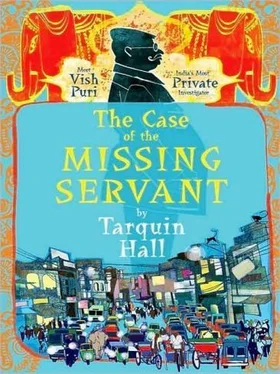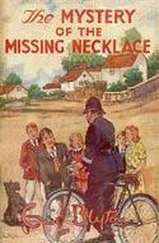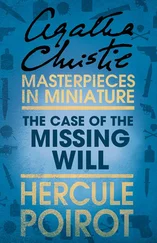Tarquin Hall - The Case of the Missing Servant
Здесь есть возможность читать онлайн «Tarquin Hall - The Case of the Missing Servant» весь текст электронной книги совершенно бесплатно (целиком полную версию без сокращений). В некоторых случаях можно слушать аудио, скачать через торрент в формате fb2 и присутствует краткое содержание. Год выпуска: 2009, ISBN: 2009, Издательство: Simon & Schuster, Жанр: Детектив, на английском языке. Описание произведения, (предисловие) а так же отзывы посетителей доступны на портале библиотеки ЛибКат.
- Название:The Case of the Missing Servant
- Автор:
- Издательство:Simon & Schuster
- Жанр:
- Год:2009
- ISBN:978-1-4165-8402-5
- Рейтинг книги:3 / 5. Голосов: 1
-
Избранное:Добавить в избранное
- Отзывы:
-
Ваша оценка:
- 60
- 1
- 2
- 3
- 4
- 5
The Case of the Missing Servant: краткое содержание, описание и аннотация
Предлагаем к чтению аннотацию, описание, краткое содержание или предисловие (зависит от того, что написал сам автор книги «The Case of the Missing Servant»). Если вы не нашли необходимую информацию о книге — напишите в комментариях, мы постараемся отыскать её.
The Case of the Missing Servant — читать онлайн бесплатно полную книгу (весь текст) целиком
Ниже представлен текст книги, разбитый по страницам. Система сохранения места последней прочитанной страницы, позволяет с удобством читать онлайн бесплатно книгу «The Case of the Missing Servant», без необходимости каждый раз заново искать на чём Вы остановились. Поставьте закладку, и сможете в любой момент перейти на страницу, на которой закончили чтение.
Интервал:
Закладка:
Puri smiled when Handbrake related all this to him.
"Did they ask about me?"
"All of them, Boss."
"And what did you tell them?"
The driver looked suddenly unsure of himself. "I told them that…you are…that you are an…idiot, Boss."
Puri looked pleased. "You told everyone?"
"Yes, just like you asked me to. I said that you forget everything from one day to the next because you are a drunkard and you spend all your mornings sleeping."
"Excellent! Very good work!" said Puri.
Handbrake grinned, grateful for the compliment. But he was still confused by Puri's motive. It showed clearly in his expression.
"Vish Puri's third rule of detective work is to always make all suspects believe you are a fool," explained the detective. "That way they are caught unawares."
"What is the second rule, Boss?"
"Pay no attention to gossip."
"What is the first?"
"That I will tell you when you are ready."
With that, Puri lay back against the seat and went to sleep. He did not wake until they reached the halfway point and Handbrake pulled into the Doo Doo Rest Raunt and Rest Stop car park.
The detective went into the air-conditioned dining room, where he sat at a clean table and enjoyed a cup of chai served in a china cup by a waiter.
Handbrake, meanwhile, went to the open-air dhaba, where he sat among the flies and the truck and bus drivers, and the same tea was served in clay cups.
Puri had good reason for returning to Delhi: he had received a summons. Not the sort of summons issued by the courts (although he had been handed more than his fair share); this was from a potential client, a man whom the detective could not ignore or put off, a childhood hero no less.
Brigadier Bagga Kapoor, retired, was a decorated veteran of the 1965 Pakistan war. He had commanded a tank battalion during the legendary advance over the Ichhogil Canal, which marked the western border with India. In September of that year, he and his men destroyed eighteen enemy tanks, coming within range of Lahore International Airport. When his own tank was hit by enemy fire and two of his men were killed, Brigadier Kapoor pulled his unconscious gunner from the burning vehicle and carried him to safety. For this action, he was awarded the Ati Vishisht Seva Medal.
Puri had never had the pleasure of meeting the legendary Brigadier, although he'd heard him lecture at the Indian Military Academy in Dehradun in 1975. Naturally, he was thrilled at the opportunity to be of service to the great man. But when Brigadier Kapoor had telephoned Most Private Investigators the day before and spoken to Elizabeth Rani, he had not specified the nature of the case. He'd simply left instructions for Puri to meet him in Lodhi Gardens at four in the afternoon.
"I tried telling him that you are out-of-station, but he insisted," Elizabeth Rani told Puri on the phone while he was still in Jaipur. "He also asked that you must go alone."
The detective stopped off at home in time for lunch to discover that Mummy had been trying to find witnesses to the shooting in the neighborhood. According to Rumpi, she had spent all of yesterday and most of this morning knocking on doors.
"By God!" exclaimed Puri angrily. "I told her not to get involved! Why she always insists on doing such interference I ask you?"
"She's just trying to help," said Rumpi as she and Malika prepared rajma chawal for lunch. "Shouldn't you be out there doing the same-asking people what they saw?"
"My dear, I'm totally capable of running my investigations. Already I've got my own people doing the needful."
This was true: Tubelight and one of his boys had been making discreet inquiries in the neighborhood since yesterday; so far, though, they had come up with nothing.
"Mummy will only make a mess of things and put people on guard. It could be dangerous, also. Detective work is not child's play. Now, please, when Mummy returns from doing her chitchat, tell her I want a word tonight. She's to stop this nonsense."
After lunch Puri drove to his office, caught up with the latest developments in the other cases on his books, which included some run-of-the-mill matrimonial investigations, and then drove the short distance to Lodhi Gardens.
The car park at the Prithviraj Road entrance was full of Hindustan Ambassadors with official license plates and red emergency lights on their roofs-just some of the thousands of courtesy cars assigned to India's senior babus, judges and politicians for conducting the business of the state. These days that included taking wives and their lapdogs for their afternoon walks, or so the ruling bureaucratic elite had come to believe.
Puri crossed the Athpula Bridge and followed the path through the gardens. He passed lawns where families sat enjoying picnics, groups of young men played cricket with tennis balls and toy sellers hawked balloons and kazoos. Cheeky chipmunks darted between the boughs of trees, and long-tailed green parakeets with red beaks perched in branches overhead, shrieking noisily. The detective passed an old man practicing his yoga exercises, breathing alarmingly heavily through his nostrils; and a bench half hidden between the bushes where two young sweethearts sat stealing furtive kisses.
Brigadier Kapoor was already waiting for Puri on the steps of the Sheesh Gumbad mausoleum, checking his watch impatiently and looking none too pleased that the detective was three minutes late. The war hero was a year short of eighty and his big military moustache, sideburns and correspondingly bushy eyebrows had turned white. Nonetheless, he was still remarkably fit. In American sneakers, socks drawn up to his knees, khaki shorts and a woolly ski hat, he was dressed for exercise.
"Puri, I've heard good things about you," said Brigadier Kapoor, who had attended Dehradun and Sandhurst and spoke with an accent that reminded Puri of bygone days.
"It's a great honor, sir," replied the detective with a salute, then a handshake.
"I do brisk walking for forty-five minutes every day at four o'clock without fail," said Brigadier Kapoor, who carried a military baton with an ivory handle tucked between his chest and the upper part of his left arm. "We'll talk along the way."
Puri was hardly dressed for brisk walking; as usual, he was wearing a safari suit and Sandown cap. But without further ado, the older man set off along on the jogging circuit at three times the pace of the detective's usual gait.
"I need you for something, Puri," said Brigadier Kapoor, sounding as if he might ask him to parachute behind enemy lines. "I don't have to tell you it's for your eyes only."
"Understood, sir."
"It's my granddaughter, Tisca." They passed some copses of giant bamboo, which arched forty feet above them. "She's to be married in two months. There's a big wedding planned here in Delhi. I was introduced to the boy two days ago. Mahinder Gupta's his name. He won't do. He won't do at all!"
The detective groaned inwardly. He had hoped that Brigadier Kapoor was going to offer him more challenging work than another matrimonial. But he still managed to sound interested. "I understand, sir."
"I blame my son, Puri," continued Brigadier Kapoor as they approached the footbridge that led to Mohammed Shah's tomb. "He's never been a good judge of character. His wife's even worse. Hopeless woman."
By now, Puri had broken into a sweat and had to wipe his brow with his handkerchief.
"What sort of family the boy is from?" asked Puri.
"They do commerce; they're Guptas. Bania caste."
"So this boy's occupied in the family business, is it?"
"He's working at some place called BPO. You've heard of it?"
"BPO stands for Business Process Outsourcing. Such companies operate call centers and all."
"I see," said Brigadier Kapoor with a frown that suggested Puri's explanation did not make things any clearer to him.
Читать дальшеИнтервал:
Закладка:
Похожие книги на «The Case of the Missing Servant»
Представляем Вашему вниманию похожие книги на «The Case of the Missing Servant» списком для выбора. Мы отобрали схожую по названию и смыслу литературу в надежде предоставить читателям больше вариантов отыскать новые, интересные, ещё непрочитанные произведения.
Обсуждение, отзывы о книге «The Case of the Missing Servant» и просто собственные мнения читателей. Оставьте ваши комментарии, напишите, что Вы думаете о произведении, его смысле или главных героях. Укажите что конкретно понравилось, а что нет, и почему Вы так считаете.












